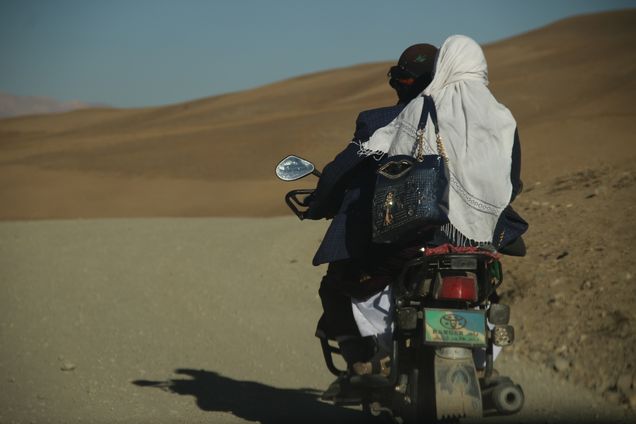The Alliance for Afghan Women’s Economic Resilience: A Partnership Between the State Department and Boston University

By Emma Liu
Following the US military withdrawal in August 2021, the Taliban entered Kabul, the capital city of Afghanistan, and took over the state, catalyzing a series of crises amid great concern worldwide.
Among the many social groups affected, women are now denied fundamental rights by the Taliban, including the rights to political participation, contribute to the paid labor force outside their homes, receive formal education after sixth grade and freedom of movement. Women, who figured prominently among the country’s public and private sector leaders, have been cut out of public life.
In September 2022, Secretary of State Antony Blinken announced the launch of the Alliance for Afghan Women’s Economic Resilience (Alliance), an initiative aimed at advancing the economic security and well-being of Afghan women in Afghanistan and in countries to which they have been exiled. The Alliance seeks to promote economic opportunities for Afghan women and girls by accelerating women’s entrepreneurship, facilitating investments in women’s workforce participation, supporting women’s and girls’ access to education and by contributing to dialogues on key issues facing Afghan women in the economy, in Afghanistan and other countries, with support from philanthropic organizations, civil society and the private sector. A public-private partnership between the State Department and the Frederick S. Pardee School of Global Studies at Boston University, the Alliance will bring together resources and support from the private sector, civil society and governments to collectively boost Afghan women’s economic resilience and empowerment.
As a key partner of the Alliance, the Pardee School will provide strategic vision, academic and intellectual support, and research expertise to accelerate interdisciplinary research, data collection and policy coordination of the initiative. Rachel Brulé, Assistant Professor of Global Development Policy at the Pardee School and a Core Faculty Member of the Human Capital Initiative at the Boston University Global Development Policy Center, serves as the University’s lead on the project. Combining her research expertise on gender equality and political economy, Brulé sees promoting women’s economic agency as not only a prerequisite for women’s basic welfare, but also to empower women to make investments in the collective well-being of communities around the world.
For Boston University, and the Pardee School in particular, the Alliance will generate opportunities for students to engage in a high-profile public-private initiative to gain experience in policy-oriented research, develop intellectual and professional capacities and make contributions with the State Department and leading Pardee faculty to promote economic gender equality in Afghanistan. The Pardee School will also serve as a thought leader at the forefront of the global research agenda on gender equality as a means for building economic resilience in the wake of political, social and climate crises.
The Pardee School will host an annual symposium focused on advancing Afghan women’s economic security, cross-disciplinary research, data collection and coordination between academic, public and private-sector communities engaged in advancing women’s economic resilience amid global crises.
At a time when women’s rights are being diminished worldwide, the Alliance is an opportunity to advance research and policy solutions to gender inequality in Afghanistan and around the world.
*
Emma Liu is a Research Assistant with the Human Capital Initiative and an MA candidate in International Affairs at Boston University.
Never miss an update: subscribe to the Human Capital Initiative newsletter.